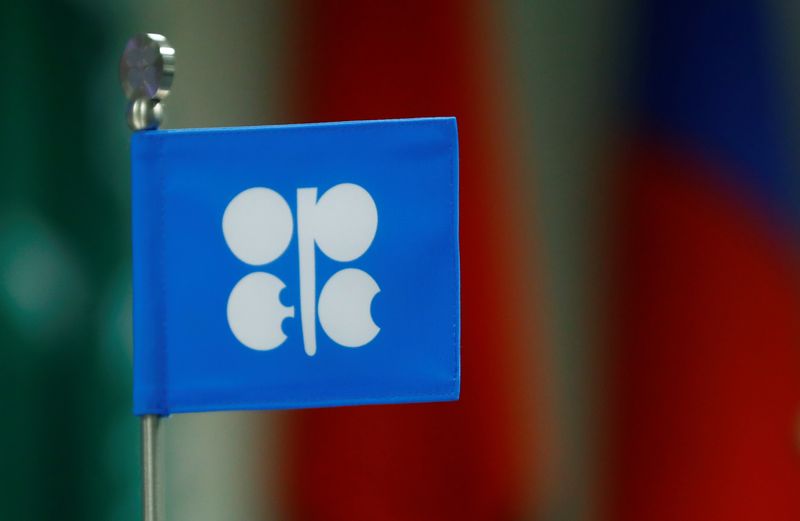By Alex Lawler and Maha El Dahan
LONDON/DUBAI (Reuters) - The policies of OPEC+ have nothing to do with the surge in crude prices, two sources in the group said on Monday, downplaying the likelihood of any boost to global supply from the alliance that includes Russia and Saudi Arabia.
Oil spiked to its highest price since 2008 on Monday amid fears about supply shortages as the United States and European allies considered banning Russian oil, while the prospects of a swift return of Iranian crude to markets receded. [O/R]
At its last meeting on March 2, the Organization of the Petroleum Exporting Countries (OPEC), Russia and allied producers stuck to a plan for a modest output rise in April and ignored the Ukraine crisis in their talks.
"The problem is the current market conditions have nothing to do with OPEC policy/policies. It has nothing to do with supply (production) shortfall," one of the sources said.
"We all know the reasons for the current price. OPEC or OPEC+ has nothing to do with all the reasons that are driving prices to current levels," the source said.
Sanctions against Moscow over Ukraine have disrupted trade in Russian oil over the past week, with many buyers shunning barrels from the world's second-largest crude exporter, even when energy exports have been exempt from Western measures.
Russia is the world's top exporter of crude and oil products combined with exports of about 7 million barrels per day (bpd), or 7% of global supply.
OPEC+ has been gradually unwinding record output cuts in 2020 in response to the collapse in demand due to the pandemic, boosting supply by 400,000 bpd each month but it has repeatedly rebuffed calls from consumers for a larger increase.
The sources said the overall supply and demand in the global oil market remained balanced.

"Fundamentals remain on track," said another OPEC+ source. "I presume the outcome of the last meeting was clear to all market participants, that the group purely considers balancing the market in its decision."
Most OPEC+ members have little spare oil production capacity at the moment, with the bulk of the extra capacity available in the Gulf states of Saudi Arabia and the United Arab Emirates, according to the International Energy Agency.